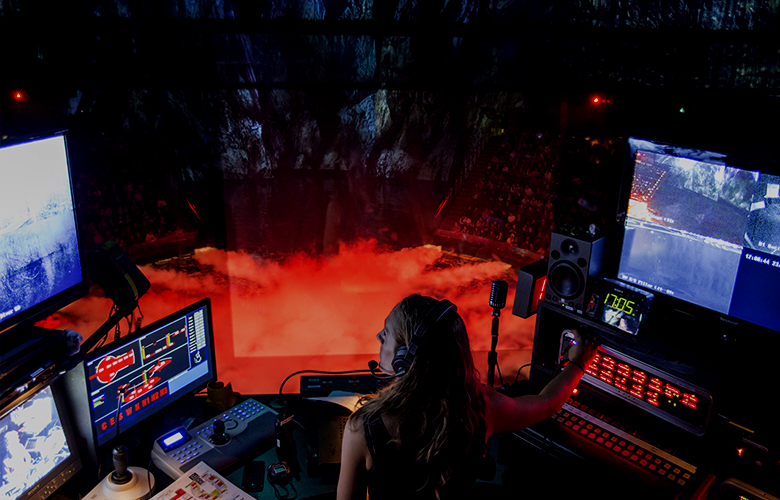If you have ever been to the theatre (or watched a theatrical performance on TV), on the outside, you’ll see a well coordinated and organised performance on stage. But, if you were to walk backstage, where the actual magic happens, it would seem slightly disorganised. While costumiers weave hems onto clothes, actors may be practising their lines in the opposite corner. The crew may be waiting to bring furniture onstage for the upcoming scene as backdrops spin to the right and left.
However, in the middle of that chaos is a critically important process called Stage Management.
What is Stage Management?
Stage management is the coordination and organisation of all aspects of a theatre production, from pre-production planning to the final performance. It involves working closely with the director, designers, actors, and crew to ensure that the production runs smoothly and that all elements are in place for each performance. Stage Management is coordinated by a Stage Manager.
Who is a Stage Manager?
From pre-production planning until the final performance, a stage manager is a professional who supervises and manages every aspect of a theatre play. They are in charge of keeping the production schedule, supervising the rehearsal process, controlling the backstage staff, and dealing with any problems that might occur on stage. In order to make sure that everything works well and is ready for each performance, they also collaborate closely with the director, designers, performers, and other members of the production crew.
Duties of a Stage Manager
A Stage Manager’s role can vary depending on the size and scope of the production. However, the responsibilities of the Stage Manager generally cuts across three stages: The pre-production stage, the rehearsals stage, and the production stage.
- Pre-production Stage
During pre-production, the stage manager works with the director and designers to plan the physical production, including the set, costumes, lighting, and sound. They create and distribute schedules and schedules for rehearsals, and take notes on blocking, cues, and any other important information.
- Rehearsals Stage
During rehearsals, the Stage Manager makes sure that the production runs on schedule, and that the actors and crew are following the director’s vision. They help to coordinate any changes or adjustments that need to be made, and keep track of any problems that arise.
Technical rehearsals are conducted by the Stage Manager when the performance date draws near. During these sessions, all of the production’s components—the sets, lights, sound, costumes, and special effects—come together for the first time. The Stage Manager announces cues, keeps an eye on the show’s technical components, and makes sure everything goes according to plan.
- The Production Stage
During the day of the actual performance, the Stage Manager is responsible for calling all of the cues, and making sure that the production runs smoothly. They handle any problems that arise, and make sure that the actors and crew are where they need to be at all times.
Conclusion
In conclusion, a Stage Manager plays a vital role in the successful execution of a production. From coordinating rehearsals and maintaining schedules, to ensuring the safety of the cast and crew, a Stage Manager’s duties are diverse and demanding. They are the glue that holds a production together, and their hard work and dedication ensures that the show goes on without a hitch. Being a Stage Manager is a challenging job that requires excellent organisational skills, the ability to multitask, and the ability to work well under pressure. It is a crucial role in the theatre, and a good Stage Manager can make the difference between a successful production and a disaster.
Are you interested in delving into the world of the Arts? Apply (here: hyperlink with application form) to join our 2nd cohort in any of our available courses – Animation, Scriptwriting, Sound Design and Stage Lighting.





























